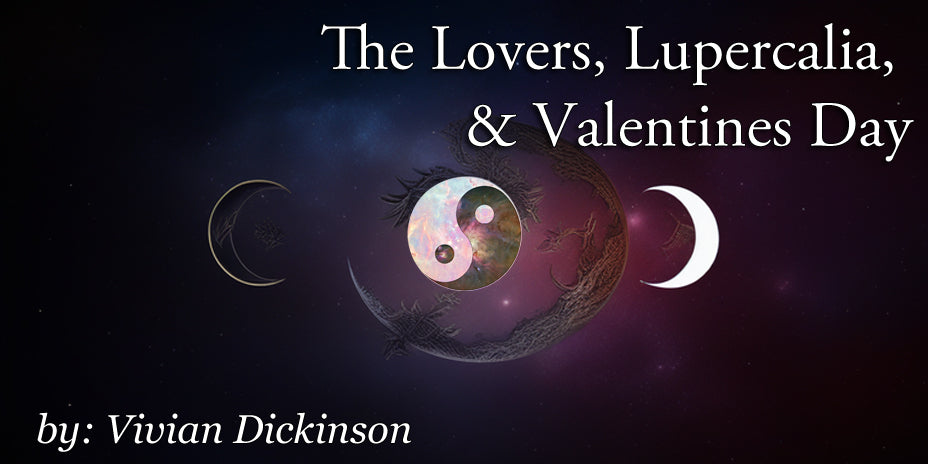
The past few days I have been part of a morning ritual where a group of people and myself meet up at 6 am for 20 minutes. In that 20 minutes we discuss one major arcane card, call in the elements, do a small movement meditation, and call in a guide. In the last few minutes, we write a prompt for the day. A few days ago, we got to The Lovers card, and I have not been able to stop thinking about it since. The Lovers card is the perfect embodiment of duality, the idea of the card being separate but equal. It is the card that I feel relates to the nature of humankind, light, and dark, love and hate, a symbol of opposites. The Lovers card is the perfect example of the two holidays Lupercalia and Valentine's Day, opposites on the same spectrum.
Lupercalia is an ancient Roman fertility festival celebrated between February 13- 15. Since this festival is so old it is impossible to say how the celebration started. The modern-day symbolism of Valentine's Day is at least somewhat based on Lupercalia.
Looking at the way each festival has been celebrated we can see the similarities and the differences between them. The Romans would start Lupercalia with a sacrifice, usually of a goat. I have seen a few mentions of a dog being sacrificed as well but I don’t know how accurate that is. The festival continued with men creating whips out of hide from the sacrificial goat. They then dipped them in the blood and went into the streets, whipping women and crop fields to bring forth fertility. Supposedly after they were done, the women would then put their names in a large urn. The men would pick a name out of the urn and pair up with the woman they chose. The festival then turns into a sexually charged fertility rite. Some of these “couples” would stay together until the next year, and some would end up getting married.
The act of pulling a name out of a hat and then coupling with that person reminds me of passing out Valentines cards during school in a way. It makes you wonder if that was one of the ways Valentine cards started.
Surprisingly, Valentine's Day did not celebrate romance until the 14th century. Valentine's Day was named after St. Valentine who was martyred about 270ce by the emperor Claudius II Gothicus. According to legend, he was executed after it was found out he was marrying couples under Christian terms. The emperor, fascinated with military perfection, had outlawed marriage, wanting his soldiers to remain single so they could focus more on their duties than their wives. Since this was a pagan society, he was told to renounce his faith and he refused and thus was executed.
Just like the Lovers card teaches us about the dual nature of self and life, the dual aspects of love, passion, and hate. During this time of marketed love, try to remember the duality of love and passion. Take time to honor the spirit of love, passion, hate, and war, how do they help us grow? What do they mean to you? What does that mean to you when you hear sayings like “all is fair in love and war”? Write down everything you can and take some time to contemplate what this time of duality means to you and how you can bring it into your daily life. Remember to take some time for yourself to practice self-love, self-acceptance, and growth.
Likewise, during this time take some time to understand your inner passions. Think of the concept of passion and hate, how similar and yet different they are. Writing about these concepts in the morning and creating a prompt for the day is a magical practice. Sometimes the simple and basic things can be the most magical.
Valentine's Day does not always have to be about the practice of love as we view it. Acknowledge your passion and how you plan to show and express it. Passions, both of love and hate, are ways to live by.
What will you acknowledge this Valentine's Day?

Leave a comment